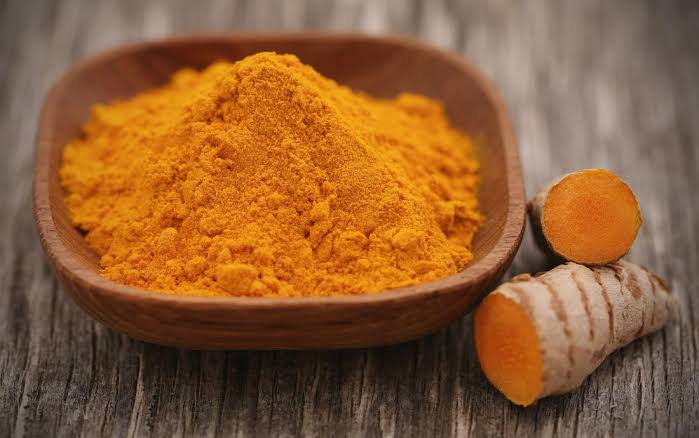Yes, the title of the article is right. In case you were wondering if there was a typo – no, we are going to talk about turmeric side effects.
I know that sounds unbelievably ridiculous. Of course, how can turmeric have side effects? Anything else in this world, but turmeric? TURMERIC?
Yes. Turmeric. It does have side effects.
Turmeric Side Effects
Increased Risk Of Bleeding
Stomach Issues And GERD
Raise Gallbladder Contractions
Lower Blood Pressure
Risk Of Kidney Stones
Pregnant And Breastfeeding Women
Diarrhea And Nausea
Not With Blood Thinning Medicines
Cause Allergic Reactions
Lead To Infertility
Cause Iron Deficiency
Risky During Surgery
Let’s take a look at what are the side effects of turmeric?
1. Increased Risk Of Bleeding
Taking turmeric has been found to slow blood clotting. This can eventually increase the risk of bruising and bleeding in people who are suffering from bleeding disorders. Turmeric might also interact with certain medications and cause excessive bleeding.
Prevention Method
Stop taking turmeric if you are suffering from any bleeding disorders or are on any medication for the same.
2. Stomach Issues And GERD
Turmeric hasn’t been found to cause any kind of stomach issues or other gastrointestinal. reactions when consumed as a part of a cooked curry. But in the case of turmeric intake for chronic conditions like arthritis or aching joints, it may lead to gastrointestinal issues.
High doses of turmeric for extended periods of time has also been found to cause gastrointestinal problems.
Also, if you are currently suffering from dyspepsia or hyperacidity, it’s better you totally avoid turmeric usage.
Even turmeric supplements might cause issues of the stomach. Especially in adults who consume more than the recommended dosage (400 mg to 3 g) of the supplements for prolonged periods of time. Turmeric can also cause heartburn and indigestion.
Prevention Method
Ensure you take turmeric only within the recommended dosage.
3. Raise Gallbladder Contractions
Turmeric contains significant amounts of oxalate, which is a chemical that can increase the risk of gallstones. In one study published in the American Journal of Clinical Nutrition, turmeric had significantly increased the levels of oxalate in urine as compared to placebo.
Turmeric supplements of 20 – 40 mg were also reported to increase gallbladder contractions.
Prevention Method
Stop taking turmeric if you have any type of gallbladder issues or if you are on medication for the same.
4. Lower Blood Pressure
Well, this could sound like a benefit. But lowering blood pressure way too much can cause complications.
High doses of turmeric can lower blood pressure, and hence individuals on blood pressure medications must exercise caution while consuming turmeric.
Prevention Method
Avoid turmeric if you are already on blood pressure medication.
5. Risk Of Kidney Stones
Too much of turmeric might increase the risk of kidney stones. This is because of the presence of oxalates in turmeric. The oxalates can bind to calcium to form insoluble calcium oxalate, which is primarily responsible for kidney stones. Hence, if you have a tendency to form kidney stones, turmeric is a strict NO for you.
In one study, turmeric ingestion had lead to a higher urinary oxalate excretion when compared to cinnamon, thereby substantiating the fact that it can cause kidney stones.
Prevention Method
Avoid turmeric if you are have any kind of kidney issues, especially kidney stones.
6. Pregnant And Breastfeeding Women
According to The University of Maryland Medical Center, turmeric is safe for pregnant women only when it is used as a spice in food dishes. Turmeric supplements must be avoided during pregnancy. And in case you are allergic to turmeric, it is best to avoid it during pregnancy.
Most importantly, there is not enough information available on turmeric side effects on pregnant and breastfeeding women. And since they are crucial periods in any woman’s life, it is best to keep turmeric away temporarily.
Turmeric has been rarely studied in breastfeeding women, and it is quite unknown if its active compounds would pass through breast milk. The resultant effects on breastfed infants are also unknown.
Prevention Method
As there is insufficient information in this regard, avoiding turmeric completely during pregnancy and breastfeeding will be ideal.
READ ALSO: Are There ‘Left Over’ Women, Men In Nigeria
7. Diarrhea And Nausea
Diarrhea and nausea are two of the common symptoms associated with turmeric supplementation. This is because curcumin in turmeric has a tendency to irritate the gastrointestinal tract.
As per certain clinical studies, individuals that supplemented with 3.6 to 8 grams of curcumin per day for 4 months experienced mild nausea (3.6 to 8 grams of curcumin per day is a relatively high dose). Even low doses of curcumin can provoke nausea in certain
individuals.
Prevention Method
Take turmeric within limit. If you observe any symptoms, stop the intake and consult your doctor immediately.
8. Not With Blood Thinning Medicines
Curcumin in turmeric has shown to decrease platelet function, and hence must be avoided by those who are on blood-thinning medications.
Individuals on medications like Warfarin or Coumadin (an anticoagulant) must steer clear of curcumin, as it can magnify the effects of the blood thinning medications.
Prevention Method
Avoid turmeric when you are on a blood thinning medication.
9. Cause Allergic Reactions
Curcumin can be a contact allergen. Certain individuals have reported contact dermatitis and urticaria due to contact with turmeric.
Since turmeric belongs to the ginger family, one is more likely to be allergic to it if (s)he is allergic to ginger. You can also be allergic to turmeric if you are allergic to yellow food colouring.
Turmeric can also cause skin outbreaks like rashes and shortness of breath. Reactions can occur from both skin contact and ingestion.
Prevention Method
If you have an allergy for yellow food colouring, it’s best to stay away from turmeric.
10. Lead To Infertility
Turmeric, if taken by mouth by men, might lower testosterone levels and decrease the sperm movement. This might eventually lead to infertility.
Prevention Method
Take turmeric in moderation and avoid excess usage.
11. Cause Iron Deficiency
As per studies, compounds in turmeric were found to bind to iron. This could decrease the body’s ability to absorb, thereby leading to iron deficiency.
Prevention Method
If you are already deficient in iron, avoid turmeric and consult your doctor regarding its usage. Check your iron levels in your blood before regularly including turmeric in your diet.
12. Risky During Surgery
This has again to dowith turmeric’s tendency to inhibit the blood-clotting process. Patients who are considering surgery must refrain from consuming turmeric one to two weeks before surgery.
Prevention Method
If you are considering surgery, you must refrain from consuming turmeric one to two weeks before surgery.
Prevention Method
If you are considering surgery, you must refrain from consuming turmeric one to two weeks before surgery.
So, that was about the major turmeric side effects. Turmeric might also interact with certain medications.
Interactions With Medications
Following is the list of medications turmeric might interact with – hence, stay away from the spice as long as you are taking these meds –
Blood thinning medications like warfarin, clopidogrel, aspirin, etc.
Medications that reduce stomach acid like cimetidine (Tagamet), famotidine (Pepcid), rantidine (Zantac), esomeprazole (Nexium), omeprazole (Prilosec), and lansoprazole (Prevacid).
Diabetes medications.
Interactions With Herbs
Turmeric might also interact with certain herbs. Though the effects of its interactions with herbs like black pepper and ginger are unclear, it doesn’t mean they don’t exist. Do consult your doctor before you use turmeric with any of the two.
Recommended Turmeric Dosage
Though turmeric has certain side effects, it indeed is essential for optimal health. And the only way to avoid the side effects is by using the right dosage. Following are the recommended dosages for different forms of turmeric –
Powdered dry root
1.5 to 2.5 grams per day.
Standardized powder
1.2 to 1.8 grams per day.
Turmeric tea
You can steep 15 grams of turmeric root in 135 ml of boiling water. You can take this preparation twice daily.
Water-based extract
30 to 90 drops of the extract per day.
Tincture
15 to 30 drops of the tincture 4 times per day.
Conclusion
Turmeric could have been that one single spice that always enjoyed a reputed status in every household. But yes, even it has got side effects. This doesn’t mean you totally eliminate it from your diet – as it comes with its fair share of benefits. Use it in moderation and as required. And, if you have any of the conditions mentioned in this post, temporarily stop its usage.
And most importantly, take your doctor’s advice.
Source: STYLECRAZE











